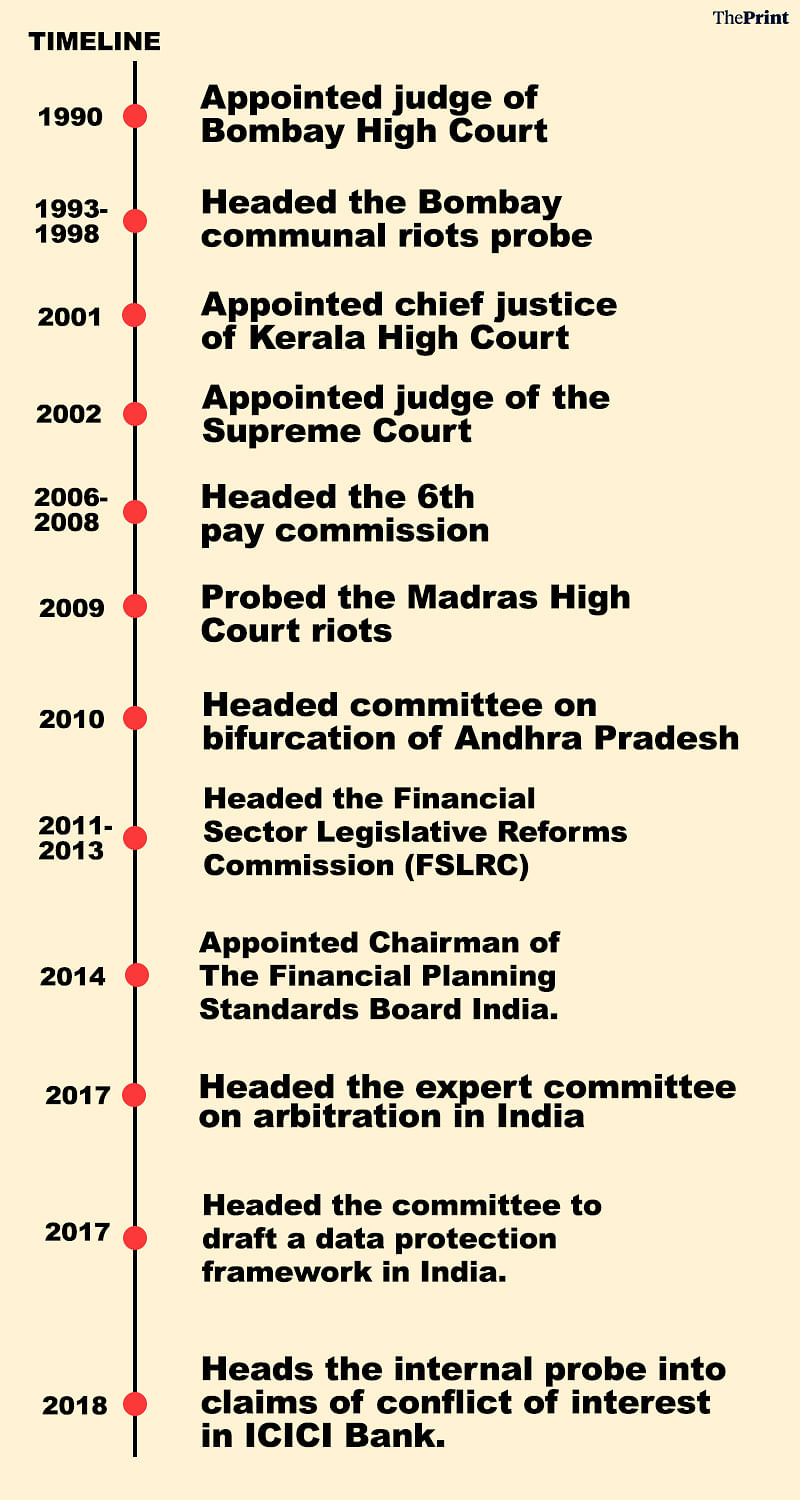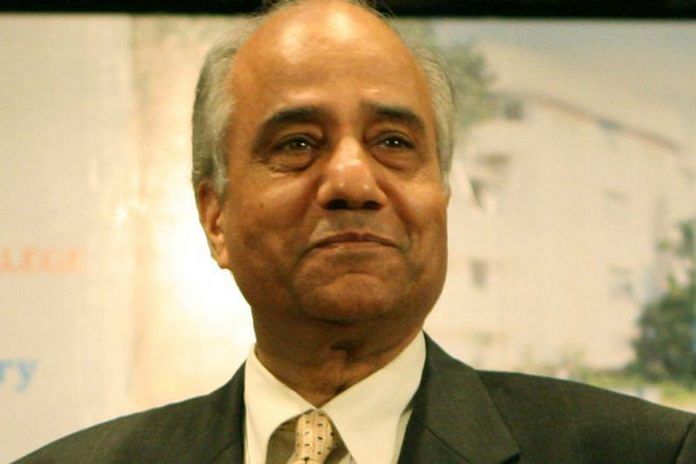For B.N. Srikrishna, retirement has meant anything but leisure; he has headed seven committees since he retired from the SC in 2006.
New Delhi: India’s much-delayed law for data protection is finally set to take shape and its main architect, 77-year-old retired judge Justice B.N. Srikrishna, is making headlines. But not for the first time though.
For Bellur Narayanaswamy Srikrishna, retirement has meant anything but leisure. A former judge of the Supreme Court, Srikrishna has headed seven committees on key issues since his retirement in 2006. An international arbitrator, he has a thriving practice in Mumbai as well.
On 15 June, ICICI Bank appointed him to conduct an investigation into allegations of impropriety against its CEO Chanda Kochhar. A day after he took over, the bank signalled that Kochhar might be asked to step down until Srikrishna submits his findings on whether Kochhar violated the bank’s code of conduct and was involved in quid pro quo transactions with borrowers.
Srikrishna has handled responsibilities as varied as the bifurcation of Andhra Pradesh and the Sixth Pay Commission. His sound legal acumen, squeaky clean career and his track-record make him every government’s favourite retired judge.
His familiarity with the dealings on Dalal Street, just off his office in Mumbai’s Fort area, also comes in handy for choosing him to committees related to finance and businesses.
For the Congress, Srikrishna’s report on the Mumbai communal riots in December 1992 and January 1993 is politically relevant since he had indicted many Shiv Sena leaders, holding them responsible for inciting communal passions leading to attacks on Muslims. While this might explain why he is sought out by Congress governments in key positions, the judge’s outlook on Hinduism and Indian culture could have endeared him to the BJP.
The judge is currently the vice-president and a trustee at Bharatiya Vidya Bhavan and a trustee at India International Centre. In the past, he has been an independent director of the National Stock Exchange of India Ltd and director of NSDL e-Governance Infrastructure Ltd and the National Securities Depository Ltd.
His rise to fame
Before he became a judge of the Bombay High Court in 1990, Srikrishna, like his father Narayanaswamy, had a booming legal practice in Mumbai.
But barely 18 months after his appointment, he was handpicked by the court for a job that made him a part of the city’s history — to investigate the 1993 communal riots.
The judge often breaks into Sanskrit verses and boasts of speaking at least 10 languages, including Italian and Spanish. His wife, Purnima Srikrishna, is an expert on temple architecture, art and iconography.
Naturally, the decision to appoint Srikrishna, a devout Canara Brahmin, to probe communal riots did raise eyebrows but the committee eventually indicted Hindu organisations for inciting the second phase of the riots in 1993 but said that December 1992 phase of the rioting by Muslims was a spontaneous reaction of leaderless and incensed Muslim mobs.
However, neither the BJP nor the subsequent Congress governments took any action based on Srikrishna’s findings. On several occasions, the judge has publicly rued that those he indicted went scot-free but has continued engagement with the government.
Post-retirement jobs
Srikrishna was elevated to the Supreme Court by the collegium in 2002. He had a relatively short tenure of just four years as apex court judge. But immediately after he retired in 2006, then finance minister P. Chidambaram asked the judge to head the sixth pay commission.
In 2009, a year after he submitted the pay commission report, Srikrishna was appointed to probe an incident of violence in the Madras High Court.
A year later, the then Congress government made him the head of a five-member committee to recommend whether Andhra Pradesh must be bifurcated when the demand for separate statehood for Telangana grew louder. In just seven months, Srikrishna’s team held several hundred consultations and recommended division of the state. The Congress’s follow-up on the report, however, saw its political fortunes nosediving in both states.
In 2011, then finance minister Pranab Mukherjee again went to Srikrishna to head the Financial Sector Legislative Reforms Commission (FSLRC).
Under the Modi government, Srikrishna was first appointed to head an expert panel to suggest ways to institutionalise arbitration in India. The retired judge lists this assignment in his resume as an arbitrator with the Singapore International Arbitration Centre (SIAC). He is the only judge to figure in the list of 21 Indian arbitrators with SIAC.
Apart from heading the data protection committee, he is also working with finance minister Arun Jaitley to finalise the Uniform Indian Financial Code.




